
I wrote a blog post yesterday about Twitter’s transition to X – and a philosophical argument broke out. Actually, it was more of a discussion. And while it was brief, it was a reminder to me we need to do more of this.
It is so easy to get caught up in the KPIs du jour, that we often miss the opportunity to chew the fat, volley a topic around, and otherwise just bat the ball around. And it’s not as if there isn’t a lot to talk about. I’ve been at this radio thing for a while now, and I’ve never seen a period of greater unsurety and flux as there is now. Whether it’s content, distribution, marketing, or monetization, it’s all pretty much up for grabs.
A.I. is a great example. I watched Paul give a new presentation we’ve put together about this new wrinkle on the tech horizon, and he started it off with a warning. Acknowledging it’s just the first inning of what will likely become a long and winding game, no one is an A.I. expert – and we should be wary of anyone who claims to be. Good advice in a landscape that already contains a growing number of charlatans, wannabes, and snake oil salesmen and women.
But back to the debate of the day, “Why is Elon Musk putting lipstick on a pig?” elicited numerous responses, but I was especially gratified when one of the wisest, most thoughtful souls I’ve ever met through radio piped up – and took exception to one of the post’s main suppositions.
most thoughtful souls I’ve ever met through radio piped up – and took exception to one of the post’s main suppositions.
John Parikhal is likely a familiar name if you’re a radio person of a certain age. Part researcher, marketer, and just all-round brilliant person, John is someone I’ve always respected and truly enjoyed having the opportunity to talk to – and yes, even wage a friendly debate with. Here’s what he had to say to me in the “comments” section of the blog.
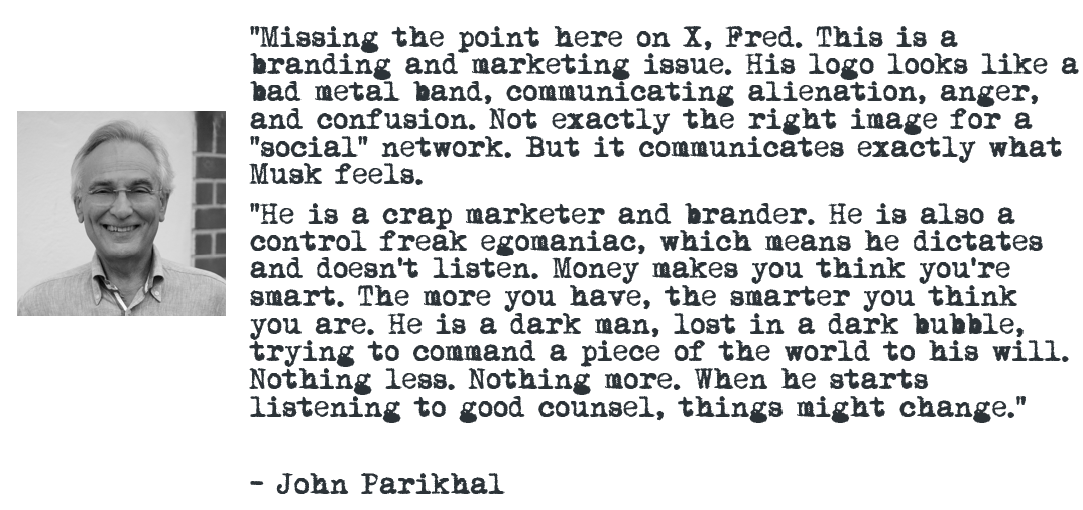
Good stuff, right? And my response:
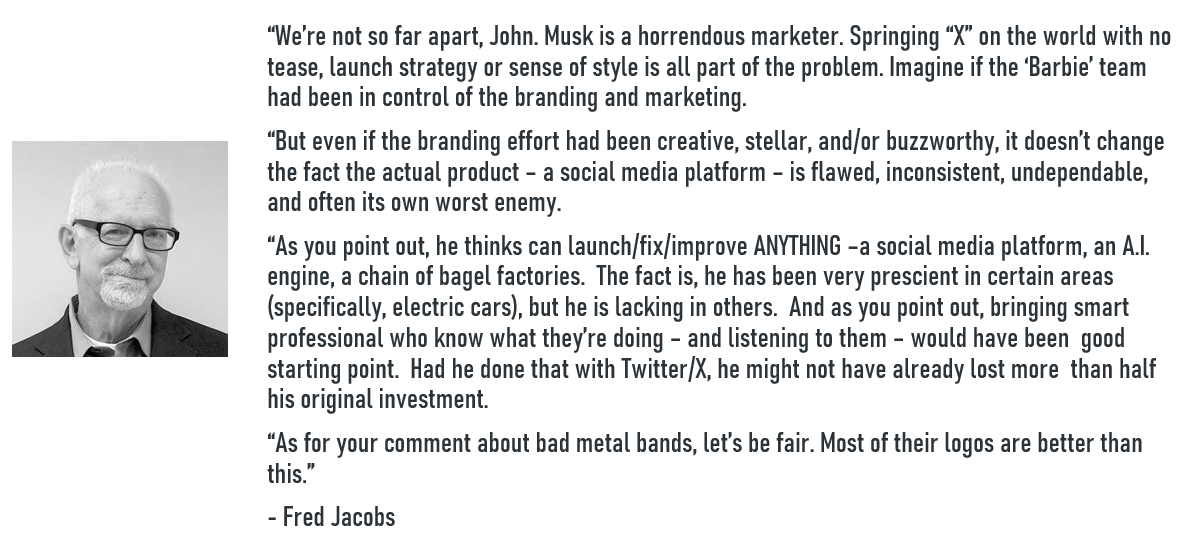
And that reminded me of a story Billy Oppenheimer (no relation, I hope) told in Twitter of all places a few days ago. He told this story:
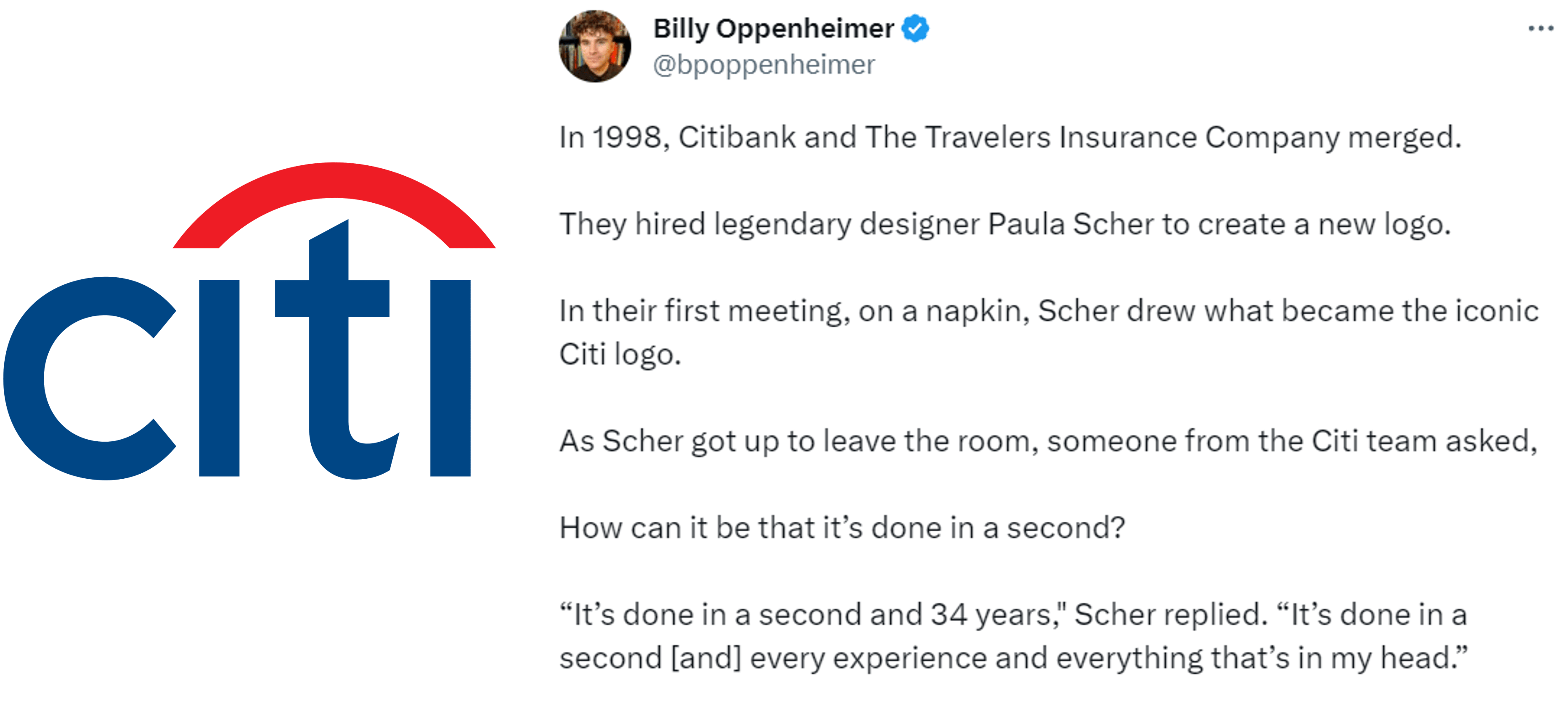
As someone who celebrates our 40th year in the consulting business in September, how can you not love this?
Change is in the air, whether we’re talking logos, brands, or the changes we’re trying to engineer in our own companies.
A former WRIF friend and co-worker, Mark Sterling, reminded me of a company philosophy I’ve heard many times over the years:

And that led me to a great blog post by Greg Satell in his always thoughtful “Digital Tonto” articles. In “The 5 Elements of the Changemaker Mindset,” Greg makes the case that most of us came up in radio, a classic “square-peg business.” But when conditions change, and we find ourselves living in a “round-hole world,” chaos and frustration ensue.
That nicely explains so much of the pain many in broadcast radio are feeling today as the world around us has moved from an ad-based media environment to a subscription-based one (mostly without ads).
subscription-based one (mostly without ads).
Sadly, those much-sought-after “best practices” will only improve our “square-peg” game, while “round-hole” creators (in this case, digital media companies and platforms) are swiftly moving to perfect their products and services.
Greg offers some great advice about how to manage these turbulent waters. My favorite is “Shift Your Mindset” where he exhorts us to “shift from a manager mindset to a changemaker mindset in which we no longer assume an environment of predictability, but explore unknowns in an atmosphere of uncertainty.”
Not everyone currently working in our “square-peg” industry will be up for the journey, but those who embrace change in our organizations are the ones who need to be empowered. That means transformation may not emanate from the corner office, but from any department in the company.
And while that may seem radical, think of this fast-approaching truth:

Yup, that’s one of mine, and increasingly, a phenomenon I see in focus and L.A.B. groups among media consumers who have ended up on the fast track. They embrace technology and gadgetry – not to be on the “bleeding edge” – but to make their lives easier and more convenient. They have learned how to use the tools and resources in front of them, whether they’re Baby Boomers or Gen Z’s.
That’s the bad news. The good news is that they’ll give you credit for taking a flyer on something new – a new feature, a special weekend, a new format.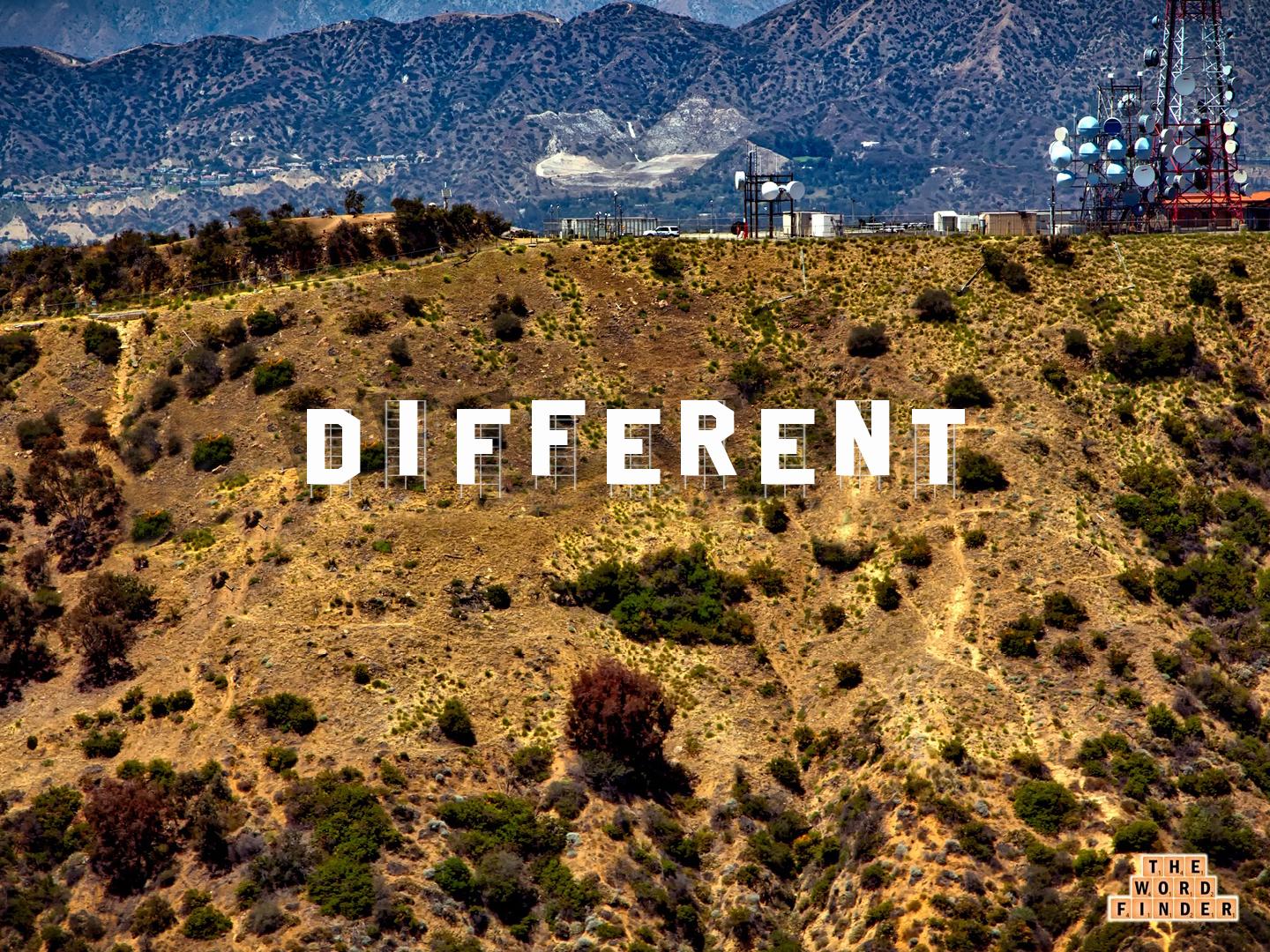
Need proof? Look no further than the box office receipts over the weekend we talked about early this week. It wasn’t just about packaging “Barbie” and “Oppenheimer” into a double-feature. It was about making two blockbuster movies unlike anything most of us had seen.
Rather than “Mission Impossible 12” or “Fast and Furious 27,” Hollywood may be finally getting the “changemaker” idea Greg Satell talks about in “Digital Tonto.” Neither “Barbie” nor “Oppenheimer” look like everything else. They break the rules in concept, production, and even feature length. And the public rewarded them both for being different.
We need to have more philosophical conversations and fewer meetings that hash over and revisit the same “square-peg” rules and regulations that have governed radio for decades on end.
For inspiration, this cartoon:
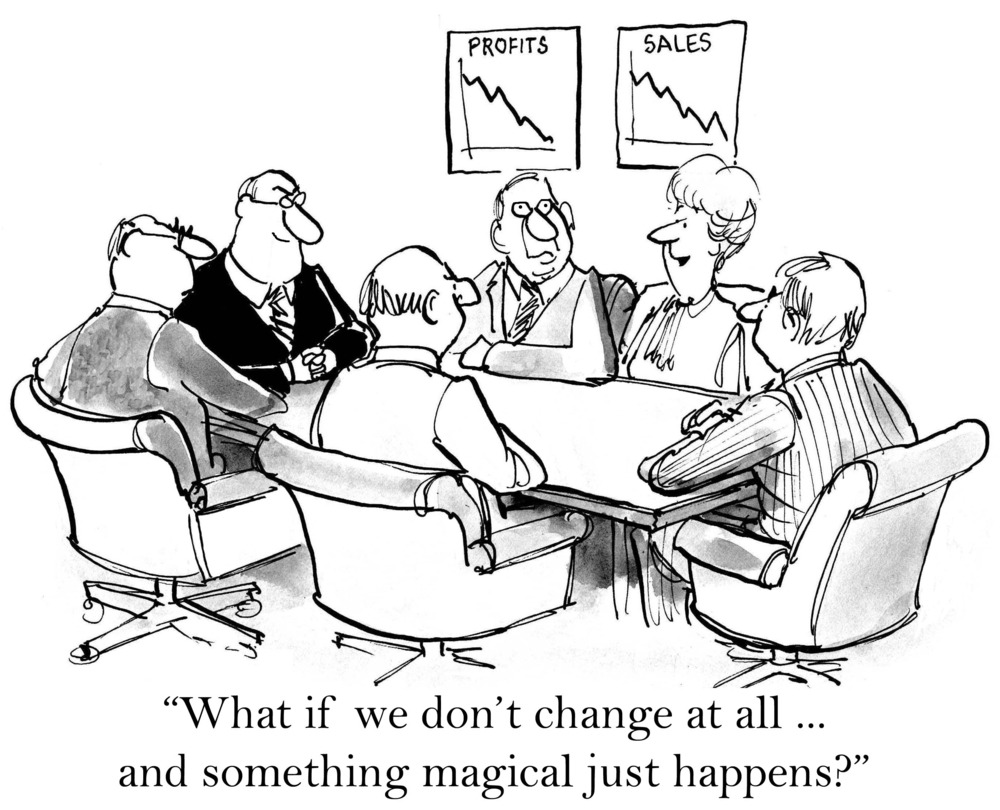
It’s OK – keep the change.
- For Radio, Will It Be Christmas In April (And Hopefully, May)? - April 21, 2025
- Media And Technology In 2025: Believe It Or Not! - April 18, 2025
- In Radio, You Just Never Know - April 17, 2025




Having lived in the SF Bay Area for many years, just a couple miles from Oracle, Meta, Google, etc. and having been in contact with an endless stream of techies I will tell you that Musk’s attitude is endemic to the industry…..His version is just ramped up on steroids, that’s all. It’s the money that breeds the attitude, “I’m rich so I’m smart”. One of the smartest people i ever met worked in a bike shop with me, but he’d be dismissed out of hand in this environment. I don’t mind the Twitter debacle is getting as much attention as it is (Barnum’s Theorem) even though it doesn’t really deserve it, because I find it always enjoyable to watch a gasbag get his/her/its due. Carry on, Elon!
There’s a lot of truth here, Bill. Clearly, your time in the Bay Area has been revelatory. Musk is the epitome of those Silicon Valley billionaires.
If the brand is broken, as it could be argued that the Twitter brand is, and if there will be a new suite of features that would not come to mind when one thinks of Twitter, as Musk implies, than the name change could be appropriate. Better than slapping “the new” in front of Twitter (or our call letters).
No argument with the need for a new brand name for a number of reasons, including the ones you mentioned. But how you roll it out speaks volumes about both the strategy and tactics. The app still has the bird symbol and the Twitter name. Same with Tweetdeck which I use every day to program tweets (which they’re still called, along with retweets). This half-baked rollout goes to the core of the shoot-from-the-hip style that permeates the platform.
I agree with you about that.